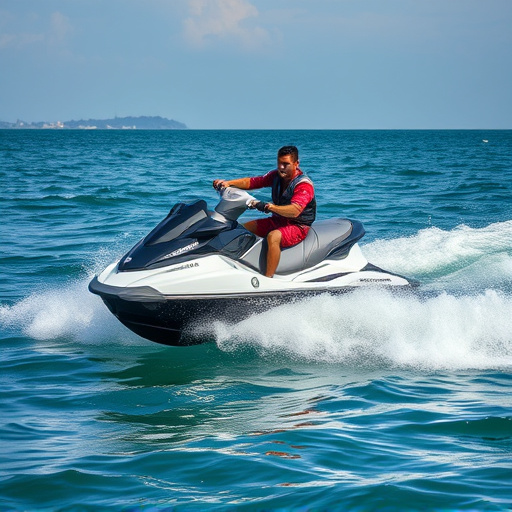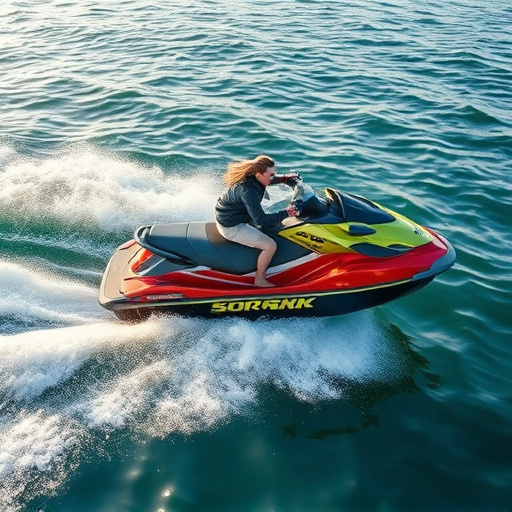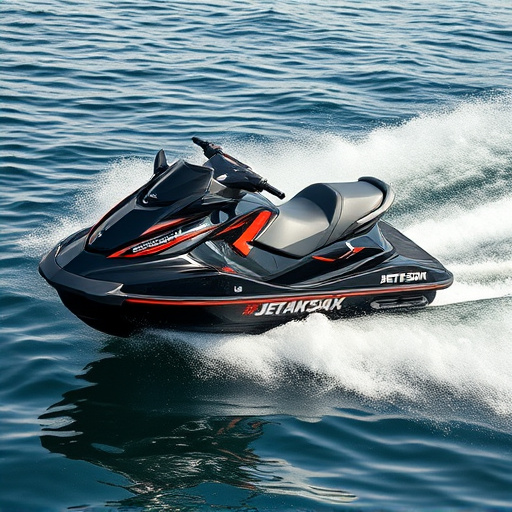Boat batteries are crucial for aquatic excursions, with capacity (ampere-hours) determining runtime for lighting, navigation, and motors. Selection requires balancing weight, cost, and vessel needs, while regular cleaning, testing, and charging maintain performance. Measuring Ah rating and discharge rate is key to optimal battery life, which can be extended through structured charging, load management, and temperature control. Choosing the right boat battery based on size, power demands, and usage patterns ensures reliable performance for memorable nautical experiences.
“Unleash the full potential of your boat’s performance with our comprehensive guide to battery capacity and endurance. This article reveals five critical insights that every boater should know. From understanding the fundamentals of boat battery capacity to uncovering factors that impact performance, you’ll learn how to measure, optimize, and choose the ideal batteries for your vessel. Navigate through this expert-backed content to ensure a smooth sailing experience with reliable power.”
- Understanding Boat Battery Capacity: The Basics
- Factors Influencing Battery Performance
- Measuring and Evaluating Battery Capacity
- Optimizing Battery Life on Your Boat
- Choosing the Right Battery for Your Vessel
Understanding Boat Battery Capacity: The Basics

Boat batteries are a crucial component for any aquatic adventure, providing power to fuel your journey. When it comes to understanding their capacity and performance, knowing the basics is essential. Battery capacity refers to the amount of electrical energy a battery can store and deliver, typically measured in ampere-hours (Ah). It determines how long your boat’s electrical systems, such as lighting, navigation equipment, and motors, can operate before needing recharging.
Different boats have varying power requirements, so selecting the appropriate battery capacity is key. Higher Ah ratings mean longer runtime, but also weigh more and cost more. Boat owners should consider their specific needs, including the boat’s size, number of electrical devices, and intended usage duration, to choose a battery with sufficient capacity for reliable and efficient performance.
Factors Influencing Battery Performance

Battery performance in boats, much like any other application, is influenced by several key factors. Firstly, the type and quality of the boat battery play a significant role; different batteries have varying capacities and discharge rates, with deep cycle marine batteries designed to withstand frequent deep discharges common in boating. Temperature is another critical element; higher temperatures can enhance performance, but extreme heat or cold may degrade battery life. Additionally, age and maintenance are vital considerations; older batteries tend to lose capacity over time, while regular cleaning, testing, and charging routines help maintain optimal performance. Furthermore, the way a boat’s electrical system is wired and the load it places on the battery also impact overall efficiency.
Measuring and Evaluating Battery Capacity

Measuring and evaluating the capacity of a boat battery is crucial for ensuring optimal performance and longevity. Capacity is typically measured in ampere-hours (Ah), indicating how much energy the battery can store and deliver at a certain voltage. To assess a boat battery’s capacity, you’ll need to perform a specific test using a voltmeter or a dedicated battery tester. During the test, you measure the battery’s voltage while it discharges under controlled conditions, simulating real-world usage. This process allows you to determine the amount of energy stored in the battery and identify any potential issues that may impact its performance.
Evaluating boat battery capacity involves not only assessing the numerical value but also understanding the discharge rate. Different batteries have varying discharge rates, representing how quickly they can release energy under load. A higher discharge rate is desirable for boats with high-power electrical demands, as it ensures swift and reliable power delivery. By combining capacity measurement with discharge rate analysis, boat owners and operators can make informed decisions about battery selection and maintenance, ultimately maximizing the performance of their vessels’ electrical systems.
Optimizing Battery Life on Your Boat

Extending the life of your boat’s battery is crucial for ensuring reliable performance during your time on the water. One effective strategy is to adopt a structured charging routine. Regularly checking and maintaining optimal charge levels prevents overcharging or undercharging, both of which can damage the battery over time. Additionally, minimizing electrical loads by turning off unused accessories can significantly enhance battery capacity.
Another key consideration for boat owners is temperature control. Extreme heat or cold can degrade battery performance and reduce its lifespan. Using insulation and shade to regulate the battery area, especially in hot climates, can help maintain efficient functionality. Furthermore, routine maintenance such as cleaning corrosion from terminals and checking connections ensures smooth current flow, contributing to overall battery health and extended service life.
Choosing the Right Battery for Your Vessel

When selecting a boat battery, consider your vessel’s specific needs. Factors like size, power requirements, and usage patterns play a crucial role in choosing the right fit. For instance, if you frequently use high-power accessories or navigate for extended periods, opt for a battery with higher ampere-hour (Ah) capacity to ensure sustained performance.
Match the battery’s specifications with your boat’s electrical system. Check voltage ratings and ensure compatibility to avoid overloading or underutilizing the battery. Regularly maintaining and charging it optimally will further enhance its lifespan and performance, making it a reliable power source for your nautical adventures.
Battery capacity and performance are vital aspects of ensuring your boat runs smoothly and efficiently. By understanding the basic concepts, recognizing factors that impact performance, and implementing optimization strategies, you can extend the lifespan of your vessel’s battery. When choosing a new boat battery, consider its specific requirements and select a high-quality option to avoid frequent replacements. With these insights in mind, you’re now equipped to make informed decisions for optimal boat battery management.
